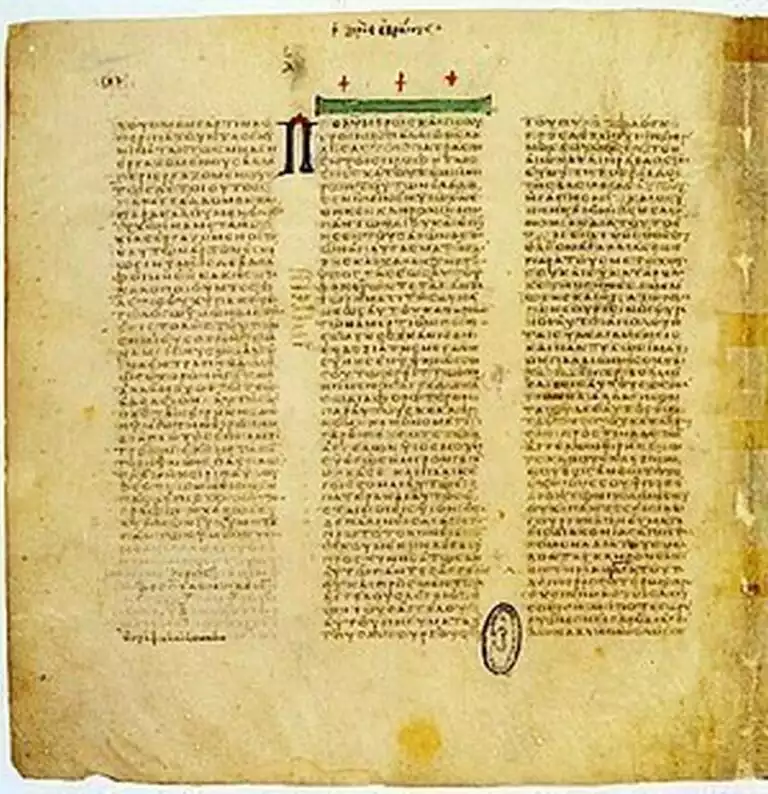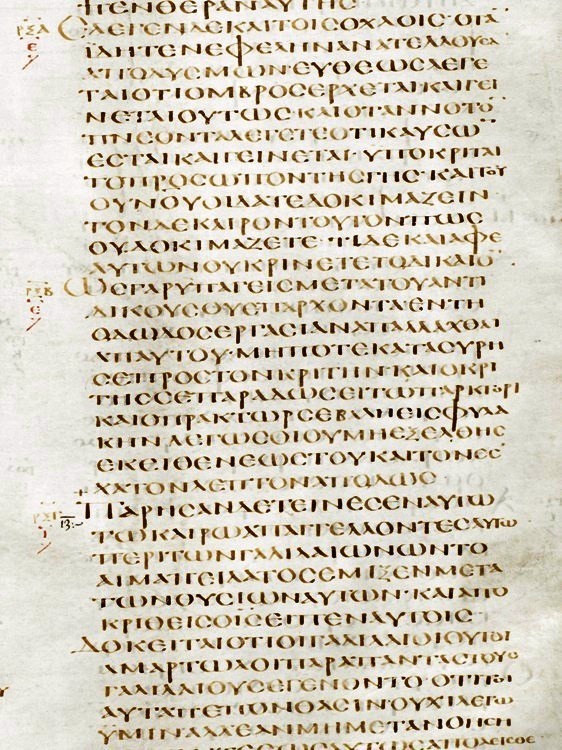
Codex Alexandrinus, one of the most significant ancient Greek manuscripts of the Bible, embodies a treasure of religious and historical scholarship. Comprising both the Old and New Testaments, this codex has been instrumental in biblical studies and textual criticism. Its origins trace back to the 5th century, making it a pivotal witness to the scriptural text’s early transmission.
Etymological and Typological Analysis
Etymologically, ‘Codex Alexandrinus’ derives from its association with Alexandria, a notable center of learning in ancient times. The term ‘codex’ refers to an ancient manuscript in book form, distinguishing it from scrolls prevalent in earlier periods. Typologically, the Codex Alexandrinus belongs to the category of uncial manuscripts, characterized by their large, distinct script. This classification aids in the codex’s dating and contextualization within the history of biblical manuscripts.
Manuscript Description and Contents
The Codex Alexandrinus encompasses the entirety of the Septuagint, the Greek translation of the Hebrew Bible, and the New Testament. Exceptionally, it also includes two early Christian writings: the First and Second Epistles of Clement to the Corinthians. The manuscript’s text is written in a polished uncial script, indicative of its high-quality production. Each page displays a columnar format, a typical feature of early Christian codices.
This manuscript’s significance extends beyond its religious content. It serves as a crucial source for understanding the text’s transmission and variations over centuries. The Codex Alexandrinus has been instrumental in identifying textual variants, offering insights into the early Christian community’s scriptural interpretations and practices.
In the realm of biblical studies, the Codex Alexandrinus holds a distinguished place due to its age, completeness, and textual significance. Scholars rely on it for critical analysis and comparison with other key manuscripts, such as the Codex Vaticanus and the Codex Sinaiticus. Its contribution to understanding the evolution of biblical text is unparalleled.
The Codex Alexandrinus is not explicitly mentioned in the Bible. However, its contents reflect the scriptural texts as recognized in the early Christian church, providing an invaluable window into the early history of the Bible’s textual tradition.
Historical Significance and Impact
The historical significance of the Codex Alexandrinus cannot be overstated. As one of the earliest comprehensive manuscripts of the Bible, it offers a unique perspective on the development of Christian scripture. This codex provides critical insights into early Christian liturgical practices and theological developments. The inclusion of the Epistles of Clement, for example, indicates the early church’s esteem for these writings, although they were not canonized in the later Bible.
Furthermore, the Codex Alexandrinus is a key resource in the study of textual criticism, a scholarly discipline that examines the changes and errors in biblical manuscripts over time. Through comparative analysis with other ancient manuscripts, scholars gain a deeper understanding of the evolution of biblical texts and the transmission practices of early Christian communities.
In conclusion, the Codex Alexandrinus stands as a monumental testament to the religious, historical, and cultural heritage of early Christianity. Its preservation and study provide invaluable insights into the early transmission and interpretation of the biblical text. As a critical resource for biblical scholars, theologians, and historians, the Codex Alexandrinus continues to inform our understanding of the early Christian world and its enduring legacy.
References
- Parker, David C. “Codex Bezae: An Early Christian Manuscript and its Text.” Cambridge University Press, 1992.
- Arxeion Politismou – Ελληνικός Χειρόγραφος Κώδικας 5ου Αιώνα
- Pemptousia – Γνωστότεροι Χειρόγραφοι Κώδικες
- Photodentro – Κώδικες
- Skeat, T.C. “The Codex Alexandrinus in the Context of Ancient Greek Manuscripts.” British Library, 2004.
- Thiede, Carsten Peter. “The Earliest Gospel Manuscript?” Library of Christian Classics, 1992.
- Würthwein, Ernst. The Text of the Old Testament: An Introduction to the Biblia Hebraica.” Wm. B. Eerdmans Publishing Co., 1995.

